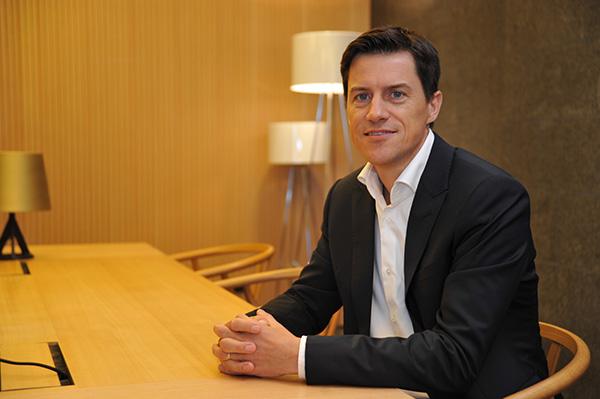
Qantas CIO, Luc Hennekens
Qantas has appointed Tata Consultancy Services (TCS) under a ground-breaking outsourcing agreement that sees the IT service provider take responsibility for all of the airline’s application management and maintenance services.
The five-year deal, one of the largest single outsourcing agreements maintained by the airline, was described by Qantas CIO, Luc Hennekens, as a “cutting-edge and very significant” contract that will see the outsourcer held accountable to distinct business-based objectives and outcomes based on the needs of each function within Qantas. The contract covers all airport operations and commercial systems.
It follows a competitive tendering process commenced last year that pitted TCS against IBM for the contract. Previously, Qantas outsourced its application services to both TCS and Tech Mahindra. About 90 per cent of the airline’s IT capabilities are outsourced.
The deal also comes as Qantas looks to slash $2 billion in operating costs across the business.
In an exclusive profile interview, Hennekens told CIO there were two key objectives with the new-look contract, known internally as ‘Project Helix’. One was to get more value from its service providers in terms of accountability and flexibility; the other, to put the emphasis on business values over technology.
Hennekens said the previous outsourcing contract, which had been in place since 2006, was based on standard SLAs across the board that were technology oriented and lacked the flexibility and business focus required of a modern IT organisation.
“The SLAs were valid across the board, and these were very large contracts and very monolithical,” Hennekens said. “Regardless of the area of business, there wasn’t any differentiation.”
In addition, the formerly rigid contract made it difficult to bring in specialist expertise or technology for specific business units, he said.
“What we wanted was to have commercial control by business capability area,” Hennekens said. “It’s not an all or nothing contract: It’s about ensuring providers are capable of playing to their strengths.”
To do this, Qantas has carved the business into 22 distinct areas and will hold TCS accountable for specific SLAs for each.
“Some are these areas are areas of investment, and where we’re driving innovation; in others, we’re keeping things as is; and in some, we’re going hard on efficiency,” Hennekens explained.
“For example, if you want to focus on efficiency, you might offshore all support, whereas for innovation you’d want to onshore. This allows us to make these decisions very explicitly, and agree with our supplier to look at these individual business areas and have a different and distinct approach with each.”
TCS and Qantas have worked together to define SLAs that are highly business relevant, Hennekens said.
“Rather than have an average network availability per month for example, which is far from relevant in some areas of the business, we will look at each business area and see what drives value, then determine the right metric,” he said.
“For example, with airport technology, ensuring customer flow is not interrupted is vital. So there is more stringent demand on technology on a Monday morning versus Thursday at 4am. It’s about defining metrics to be more business relevant and that are tied to what drives the business.”
Qantas also wanted ensure its supplier took end-to-end accountability for multiple vendors sitting in the technology stack, Hennekens said.
“Qantas doesn’t want to be the in between player, responsible for the network versus application support. The supplier has to be responsible from a top-level down of that application, and look across the whole stack,” he said.
In the lead-up to signing the all-encompassing outsourcing agreement in late November, TCS was appointed to manage Qantas’ ERP systems last year.
“We 'verticalised' this to deliver all these services, not just coordinating it, so TCS has the application through to the datacentre,” Hennekens explained.
“Accountability was very important to us, but we didn’t want to do full 'verticalisation' in one go. This [ERP contract] was a big step towards focusing on outcomes for the business, versus a pure technology outcome.”
In addition, Qantas opted to include management of its middleware application database in the new contract with TCS. Previously a part of its infrastructure outsourcing contract, Hennekens said it made more sense to bring this together with wider application management.
“It also helps us as a step on the way to using SaaS-based applications, where we don’t have to look after infrastructure and the database together,” he continued.
“Cloud helps us move closely to a more integrated stack by automating more. It means we can focus on application dataflows and functionality as opposed to the underlying operating system.”
Hennekens declined to put a financial figure on the TCS contract, which came into effect last week, but said it was one of the most significant for the IT function. He also claimed costs had gone down compared to what Qantas is paying today.
He admitted one of the deciding factors in appointing TCS over IBM was that the outsourcer “understood the concept and demonstrated they can go on that journey with us”.
While TCS has driven similar outcomes with other customers, Hennekens called the new contract “cutting-edge” and said both organisations had to agree to significant transformation and investment to make it work.
But he insisted Qantas has gained ability to move to another supplier for any of the 22 business units if it’s not happy with TCS’s performance and capability, or if “a specialist vendor makes it their business to do that technology very well”.
To read more on Qantas’ transformation plans, check out our exclusive profile of Luc Hennekens in the latest issue of CIO magazine
Join the CIO Australia group on LinkedIn. The group is open to CIOs, IT Directors, COOs, CTOs and senior IT managers.
